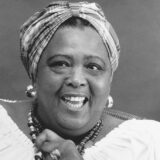The contribution of Caribbean peoples to the survival of the African Diaspora cannot be overstated. Its greatest gift, of course, is the example of liberty and self-determination in the form of the Haitian Revolution—the demonstration that Black people could dismantle the global power of morally bankrupt enslavers and build a nation in the colonized world.
So too, its contributions to our poetry! It would be difficult for any literary person to think about Caribbean literature and not think of the great Saint Lucian poet, Derek Walcott, who would often remind listeners that was he not “American,” in the typical understanding, and the breadth of his observation had no allegiance to this empire. I turn to Walcott now for how his poetry proves that Caribbean life and culture is imbued with the natural world. His penultimate collection of poems, White Egrets, was in fact inspired by the flora near his daughters’ houses, “sometimes puta trees or flamboyants or immortelles,” which produce in him a “physical serenity.” In conversation, he spoke of poems that confirm a “memory of anticipation” and it is this attitude that I hope the poems curated for African American Garden: The Caribbean Experience will convey; that the flora which appears in the poems, and also in the garden itself, become emblems of memory and portals to a time or place that is special to each individual visitor.
In an effort to capture the rich cosmopolitanism of the Caribbean, the poems are accessible in English, Spanish, and Haitian Creole. From the devastating epic of Desiree C. Bailey’s “Chant for the Waters and Dirt and Blade” is a harrowing passage on the commodity which, arguably, fueled Europe’s enslavement project—sugar; a comic plea touches upon the ramifications of World War II in “Rice Gawn,” a poem by Louise Bennett, whose life’s work was to codify Jamaican Patois in myth and the stories of the island; Gustavo Pérez Firmat’s word play in “Bilingual Blues” allows the Spanish language to dance in the center of its newfound English-speaking homeland; Rico Frederick’s “Grandpa Shoes” is a warm depiction of life in Trinidad from the point of view of a child and told at a child’s speed; the sensual act of eating fruit becomes a poet’s meditation in “Paradise and Quenepas” by Jane Alberdeston Coralin; and the clear, high lyric of Marie-Ovide Dorcely threatens a kind of transcendental rapture with its beauty.
I encourage you adjust your rhythms to the poems and open, not only taste but all your senses to the cornucopia of the Caribbean.
– Dante Micheaux








